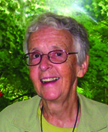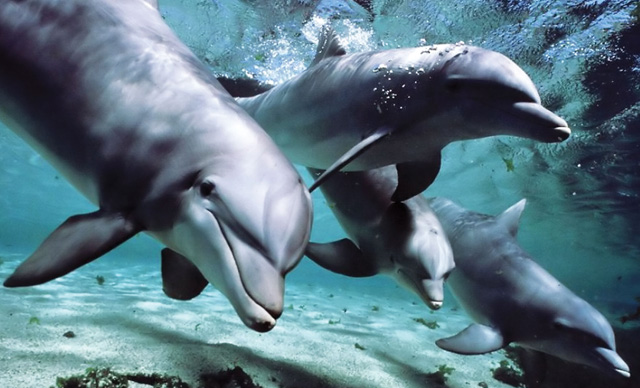Communion with the Earth
How can we show more reverence for Creation and be better stewards of the resources of our precious planet?
By Sr. Patricia Kay, O.L.M.
May/June 2012
Return to Table of Contents
Print Article
Recently I saw for the first time the award winning documentary, ”The Cove”. Those who have seen the film know what a horrific story it tells of the plight of thousands and thousands of dolphins waylaid on their migratory journey in the waters off Northeastern Japan. They are corralled into a cove for capture and slaughter in a lucrative venture. And dolphins are the very creatures called to praise God by the three young men in the fiery furnace written about in the Book of Daniel.
The sight of the bloody cove in which the captured dolphins are being mercilessly bludgeoned to death was for me a powerful example of the ongoing destruction of so much of our Earth and its inhabitants. As citizens we need to ask ourselves how we can show more reverence for Creation and be better stewards of the resources of our precious planet. Can we develop a simpler lifestyle using less water, less energy and less electricity? Can we be more responsible in our own way for the care of our home, the Earth? Can we be more conscious of our suffering planet and deeply regret our wasteful and destructive habits? Nan Merrill gives a prayer, a rendition of Psalm 79, that we all may use: “Forgive us for the misuse and abuse of your Creation; humble us with your steadfast Love, before the world becomes a barren waste. Help us, O compassionate One, to renew the face of the earth; deliver us, and forgive our sins, that we might know the joy of co-creation!”
The new cosmology, the result of so much investigation into the origin of the universe, tells us that every part of it, including all life on our planet, is mysteriously in commun-ion. We are all deeply connected. Our origins are common from the beginning of Creation. How important it is then for humans to meditate on these things and act accordingly! Again Nan Merrill can help us to pray: “O children of Light, radiate blessings to the universe! Surrender yourselves to love!” (Psalms for Praying, p. 285)
Science and religion both call us to respond to these realities, but let us give science the last word. Howard Smith, an astrophysicist at the Smithsonian Center in Massachusetts, in his article “Alone in the Universe” (American Scientist, July-August 2011), reflects on how unlikely it is for intelligent life to form, thrive and survive easily. He calls for “a renewed appreciation of our good fortune and (acknowledgement) that life on Earth is precious and deserves supreme respect. Even if we are not unique in the universe—though we may not know one way or the other for eons— we are fortunate. An awareness of our rare capabilities can spur deeper humility and acknowledgement of a responsibility to act with compassion toward people and our fragile environment.”
Return to Table of Contents
Print Article

